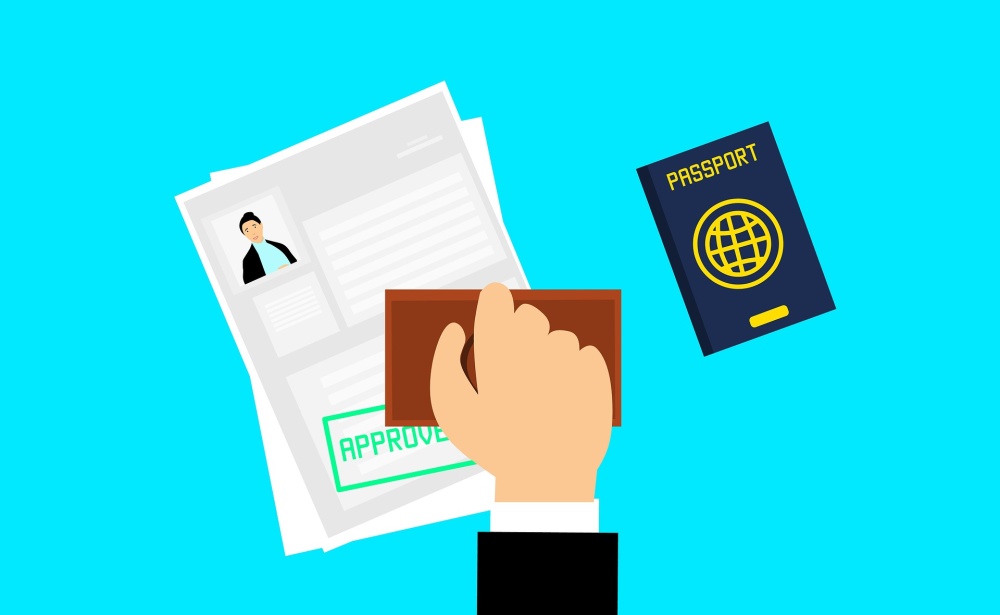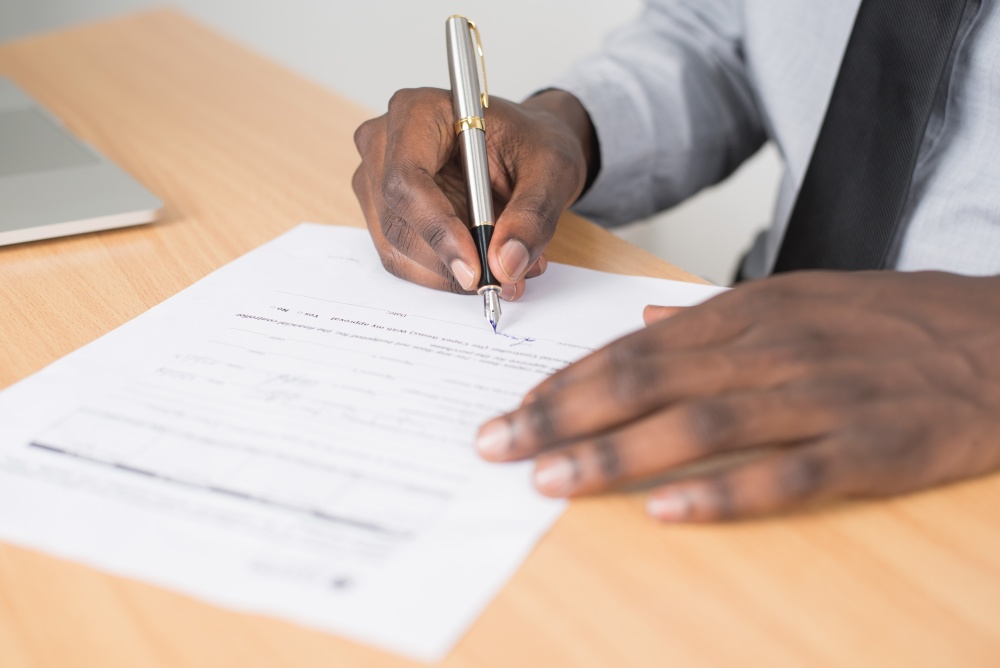Updated April 3, 2025
How to Get Permanent Residence in Japan [2025 Guide]
Lots of expats in Japan want to get Permanent Residence (PR).
A permanent residency status provides a sense of security, and it makes you feel like you’re finally an official part of the country you now live in.
Sure, having lived there for a while, you’re sure to feel somewhat like a local. But nothing beats the comfort of not having to extend your visa. Not scrambling to find a new job in the event that you lose your current one is also an understated benefit, as many foreigners’ visas are tied to a single industry or workplace.
With permanent residence, you just get to live and be a part of society.
Sounds amazing, doesn’t it? If you’re considering living in Japan for the foreseeable future, the premise of permanent residency feels like a dream.
Today, I'll explain how you can achieve this dream. I’ll tell you how to get permanent residence in Japan and what documents you’ll need. I’ll also explain the application process, as well as talk about how difficult it is to get it.
First, let’s start with the benefits of getting permanent residence in Japan.
The Benefits of Getting Permanent Residency in Japan
As I mentioned, perhaps the biggest perk of being a permanent resident in Japan is not having to renew your visa.
Normally, you’d need to apply to extend your visa when it expires — sometimes as frequently as once every year. This requires a lot of effort and time, not to mention bureaucracy. With permanent residency, you’ll no longer have to worry about that.
You only need to renew your residence card once every 7 years, but this isn’t much of a hassle when compared to visa renewal.
A permanent residency also allows you to work at any job you want. You’re no longer limited by your field and can even work freelance. If you happen to leave your job, you no longer need to worry about finding another job as soon as possible either.
With your permanent residency, you’ll also have the opportunity to get personal loans from banks in Japan, which is a testament to how reliable the permanent residency status is in Japan.
Many banks require permanent residency to give mortgage loans (for example), and even those that don’t usually offer a worse rate for people on less-permanent visas.
So, how hard is it to get permanent residence?
Is It Hard to Get PR in Japan?
Generally speaking, it isn’t that hard to get permanent residence in Japan, but you’ll have to follow some rules.
As long as you’re eligible, the process is pretty straightforward.
As long as you don’t break any laws, work a stable job with a stable income, pay your taxes, and pay your debts, once you submit your application, you can expect to get permanent residence in about a year. The bigger time sink is becoming eligible, which isn’t as easy.
That might sound vague, but it all depends on the situation.
Let’s look at some specific scenarios and the requirements for each case.

Who Is Eligible for Japan’s Permanent Residency Title?
Mainly, there are 3 distinct ways to become eligible for permanent residency in Japan.
The first one is being a resident of Japan for more than 10 years. If you’ve been living in Japan for more than 10 years on any type of visa, you’re eligible to become a permanent resident.
Keep in mind, it has to be 10 continuous years — you can’t leave for a year in the middle and come back. Also, this isn’t a 100% hard requirement. I’ve heard of people supposedly getting it a little faster (e.g 8 or 9 years). It appears that immigration has some leeway, but 10 years is the usual recommendation before applying.
However, that’s not the easiest way to do it.
You can also become eligible for permanent residence by fulfilling a certain amount of time in Japan as a “highly-skilled professional” and collecting enough points in the system.
Essentially, the highly-skilled professional system is a residence eligibility system where you collect points according to a chart, which provides preferential treatment for highly-skilled immigrants. If you have above 70 points, you’ll be eligible to apply for permanent residence after a 3-year wait.
If you get over 80 points, you can apply after a 1-year wait.
One thing to know about the points-based “highly-skilled professional” system is that you don’t actually need to be on the “highly-skilled professional” visa to be eligible for PR. You just have to be able to prove that you were eligible for the required number of points 1 or 3 years ago, and are still eligible at the time of application.
I realize this is complicated, but I explained everything related to the highly-skilled professional visa and other visa types in detail in my post on getting a visa as an engineer in Japan. You can head over there to learn more.
Another way to become a permanent resident in Japan is to marry a Japanese citizen or a permanent resident. There’s a requirement of being married for 3 years, and you can only apply for PR after you’ve been a resident in Japan for at least a year.
With all of these options in mind, let’s get down to the specific requirements.
Requirements for Getting Permanent Residency in Japan
As we said, the first requirement you’ll need to fulfill is residing in Japan for a given period. The required period varies based on your visa status or how many points you’ve collected as a “highly-skilled professional” visa holder.
Reside in Japan for a Certain Period
As I explained, spouses of Japanese citizens or permanent residents become eligible after 3 years of marriage and one year of living in Japan.
With a highly-skilled professional visa, if you have less than 80 points, you’ll be eligible for permanent residency after living in Japan for 3 years.
If your points are above 80, you only need to live in Japan for one year before you can apply for permanent residence status.
If you’re on any other type of visa, however, you’ll have to live in Japan for at least 10 years before you become eligible.
While these requirements are good and all, finding a place to live as a foreigner when you first move to Japan can be a pain. We have a tailored guide on our blog for finding apartments in Japan as a foreigner — I recommend you check it out if you’re struggling.
Don’t Get in Trouble, Pay Your Taxes
In addition to these, there are a few more requirements.
You have to abide by the law and “act properly.” The law requires candidates to conduct themselves in a way that doesn’t attract criticism from society. This may sound vague, but all you need to do is refrain from breaking the law, and you’ll be fine.
Of course, you shouldn’t have any tax debt either, as you’ll be asked to present your tax certificate (a certificate that shows that you’ve paid your taxes) in your application.
Prove That You Can Make It
Another requirement is that you need to prove that you can make it in Japan on your own. This means both financially and socially.
To prove that you can support yourself financially in Japan, you’ll have to show financial proof. Although there’s no set amount, it’s safe to say that your annual income shouldn’t be lower than 3 million JPY.
If you don’t have a certain amount in the bank at the moment, you can also show an employment contract or anything that’ll help your case of proving that you’re able to support yourself.
The other requirement is finding a guarantor. In this context, a guarantor is a person who vouches for your personality — not your financial state — stating that you’re fit to live in Japan.
Your guarantor won’t be responsible for any of your financial debts, as this is more of a formality and a tradition. Therefore, you don’t need to worry about it too much — it’s mostly symbolic.
Let’s take a look at the documents required for your application.
Necessary Documents for Getting PR in Japan

Here’s a list of all the documents you’ll need for a permanent residence application in Japan. Keep in mind that you’ll need to submit all of these documents in Japanese, either officially translated from or along with the originals.
Your photograph in 3 cm x 4 cm dimensions, taken in the last three months. You can follow passport photo rules here.
A filled and signed application form, which can be found here.
Your passport, along with photocopies.
Annual income statement — bank statements, an employment contract, or both.
Employment status certificate, which is your employment contract, tax statements, or a business permit if you’re self-employed
Your current residence certificate.
Proof of resident tax payments.
Bank statement from previous months.
You’ll also need to present a few additional documents if you’re applying for permanent residency as a spouse of a Japanese citizen. Here’s the list:
Family registry papers of your spouse (if they’re a citizen).
Your marriage certificate.
A letter that describes your relationship, written by your spouse (if they’re a permanent resident).
Proof of employment of your spouse, along with a letter stating they are financially responsible for you (if you won’t be working in Japan).
Lastly, a few documents are required from your guarantor as well.
The guarantor’s residence certificate that’s not older than 3 months.
A signed letter by the guarantor.
The guarantor’s proof of employment.
The guarantor’s tax certificate.
Now that you have all of your documents ready, you can move on to the actual application process. Here’s how you do it.
The Process of Getting Permanent Residency in Japan
You’ll need to apply for a permanent residency status before your current residence permit expires. Also, keep in mind that your current visa needs to be at least a 3-year visa in order to apply.
Even if you stayed in Japan for 5 years, if your current visa is shorter than 3 years, you won’t be able to apply for permanent residence. Still, since work visas and highly-skilled professional visas are usually issued for at least three years or longer, that shouldn’t pose much of a problem.
How to Apply for Permanent Residency

After getting all of your required documents ready, you’ll have a few options to apply.
You can go to your local Immigration Office and submit your documents yourself or have someone else do it for you. If someone else is applying on your behalf, you’ll have to officially authorize them. If it’s your lawyer applying, power of attorney is needed instead.
After submitting your application, all you need to do is wait. The waiting times for your application to be processed can change drastically depending on the time of the year you’re applying.
You’ll be notified once your application is approved, and then you can go back to your local immigration office to collect your permanent resident card.
How Long Does It Take to Get PR in Japan?
As I close out today’s post, I’d like to emphasize that the waiting times can change a lot with permanent residency applications.
While preparing the required documents and the actual application process isn’t that long, the processing of the application is what takes the longest time.
You can check the immigration office’s website to find more information on processing and waiting times. The website states that the current processing time is 4 months.
If you have time constraints, I recommend planning a few months in advance. Even if the official website says 4 months, you should plan as if it’ll take 8 months (which isn’t unheard of), just in case.
Lastly, the processing time can also depend on the immigration office you applied for, as well as the documents you’ve supplied.
While you can’t do anything about the workload of your local immigration office, you can make sure that your application is complete with translations and that all of your documents are easy to read.
Get Job Alerts
Sign up for our newsletter to get hand-picked tech jobs in Japan – straight to your inbox.









